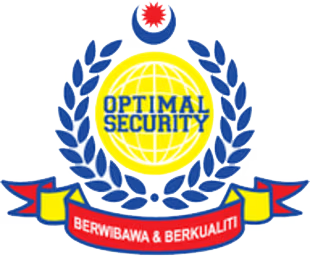Who is a Security Guard?
A security guard (also known as a security officer, security inspector, or protective agent) is a professional employed by a government agency or private organization to safeguard assets—including property, personnel, equipment, and finances—from threats such as theft, vandalism, and unauthorized access.
Security guards maintain a high-visibility presence to deter illegal or inappropriate activities. Their responsibilities include patrolling areas, monitoring alarm systems and surveillance cameras, responding to security breaches, and reporting incidents to clients, law enforcement, or emergency services when necessary.
At Optimal Security, we employ highly trained security personnel, including local Malaysians and Nepalese (Gurkhas), who are known for their discipline, reliability, and expertise in security services.
Our security guards are qualified, experienced, and certified by the Persatuan Perkhidmatan Kawalan Keselamatan Malaysia (PPKKM) [Security Services Association of Malaysia].
Security Guard Duties, Functions & Responsibilities
- Unarmed security guards will be stationed at designated locations to ensure site safety, following management instructions and security protocols.
- Guards will manage visitor and contractor movement while minimizing disruptions to legitimate activities.
- Security personnel must remain vigilant at all times, proactively identifying potential security and safety threats.
- As representatives of THE CLIENT, guards must uphold a professional image by demonstrating friendliness, courtesy, and cooperation while maintaining a firm, calm, and respectful demeanor.
- Guards will conduct regular inspections of lighting, firefighting equipment, walls, and other facilities to prevent fire hazards and security breaches.
- All assigned security guards report directly to the client's Security Officer regarding all security-related matters, including discipline.
- Guards must be knowledgeable about fire safety equipment, including fire extinguishers, hoses, standpipes, sprinklers, and other fire protection systems.
- Security personnel will patrol premises, inspect buildings, monitor equipment, and control access points to ensure site safety.
- Operate, monitor, and enforce access control, shipping security, and surveillance systems, including CCTV control centers.
- Maintain security logs and reports, documenting all activities, incidents, and security events.
- Respond to and manage security incidents, including disorderly conduct and threatening behavior.
- Utilize and maintain two-way communication systems to stay in constant contact with security teams.
- Ensure functionality of security systems, including motor gates, barrier gates, clocking devices, and walkie-talkies.
- Guards must report all non-conformities, suspicious activities, or criminal incidents to the Security Supervisor.
- Immediately investigate any crime reports and take necessary actions.
- Sound alarms and initiate emergency protocols when needed.
- Ensure compliance with legal security requirements to uphold organizational stability and reputation.
- Perform preventive maintenance on security equipment, troubleshoot issues, and arrange necessary repairs.
- Guards will contribute to overall team efficiency by executing duties effectively and supporting security operations.
Today, security guards are expected to perform a wide range of duties and functions beyond basic safety enforcement.
The demand for specialized security services continues to rise, requiring expertise in monitoring remote systems and adapting to industry-specific security needs.
Security Guard Discipline
Security guards must report for duty on time as specified by management. If a guard is unable to report due to illness, injury, or other reasons, they must immediately notify their supervisor. Failure to provide timely notification is considered serious misconduct and may result in disciplinary action.
Guards are required to remain on duty until properly relieved. Before leaving, they must relay any special orders or important information to their replacement. Guards must not accept relief from an individual who is unfit for duty due to health, intoxication, or any other condition. It is the guard’s responsibility to ensure their relief is competent, alert, and fit for work.
All new instructions or orders will be communicated by either the Security Officer of THE CLIENT or the guard’s supervisor. Supervisors must ensure that all instructions are clearly understood. If necessary, written orders may be issued using a duplicate book for reference.
Strict disciplinary action will be taken against guards who fail to follow orders. Any security guard who disobeys orders or neglects duties will be subject to penalties. After three official warnings, the guard will face dismissal. In cases of gross insubordination, immediate termination may be enforced.
Security Guard Approach
- Conduct a site survey and physical inspection of the facility or job site.
- Analyze current security requirements, including threats, risks, vulnerabilities, barriers, lighting, access control, intrusion detection, personnel, and procedural countermeasures, to determine the sufficiency and level of protection of the facility.
- Review and analyze existing security designs to identify necessary modifications and adjustments that ensure an adequate level of protection for all property/assets.
- Identify opportunities to enhance security/safety arrangements, consistent with the desired level of protection, for more efficient business operations.
- Provide a relevant budget for additional expenditures required to meet the agreed level of protection.
Security Guard Conduct & Appearance
If any false information is found in a report, the guard concerned will be dealt with accordingly. After three written warnings, the guard will be dismissed.
Whilst on duty, guards must always appear smart and tidy. They are responsible for wearing the specified uniform that meets standards of cleanliness, fit, and professionalism. This includes: ironed attire, buttoned shirt, cap, and polished shoes. Guards must also maintain proper personal grooming, such as short, trimmed hair, clean hands, a clean-shaven face, and trimmed fingernails.
When providing information, guards must ensure it is accurate and not classified. They must not discuss assignment details except with authorized personnel.
Whilst on duty, guards must avoid personal conversations with fellow guards. Conversations with others should be strictly work-related.
Guards must not sleep on duty, consume intoxicants, or report for duty under the influence of alcohol or drugs that impair their mental or physical abilities.
Smoking is strictly prohibited within the site and in areas where it has been banned by management.
